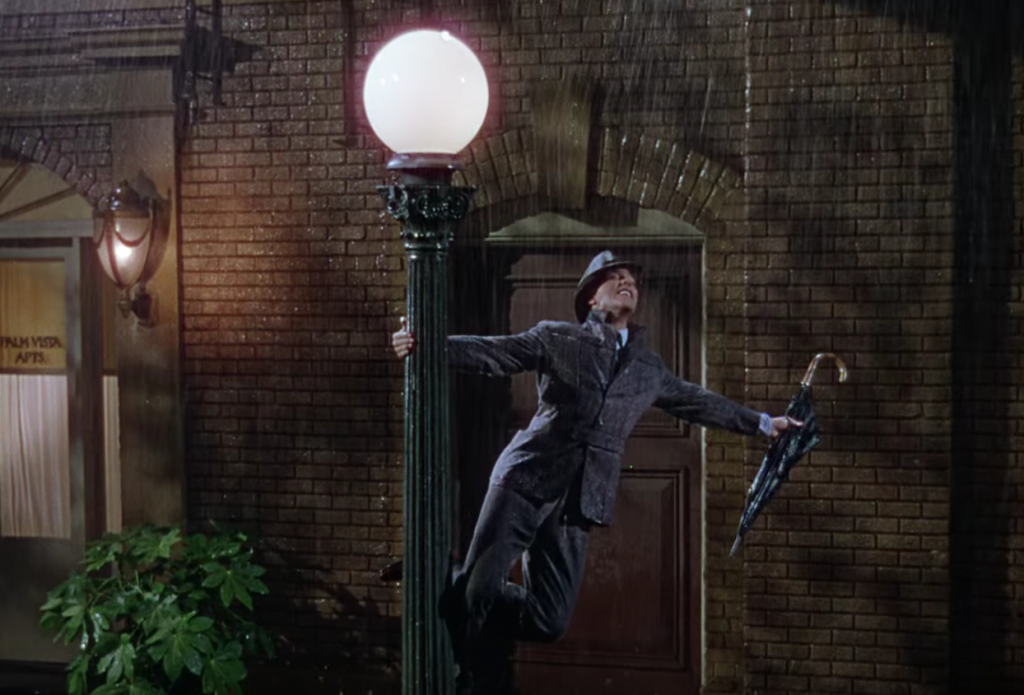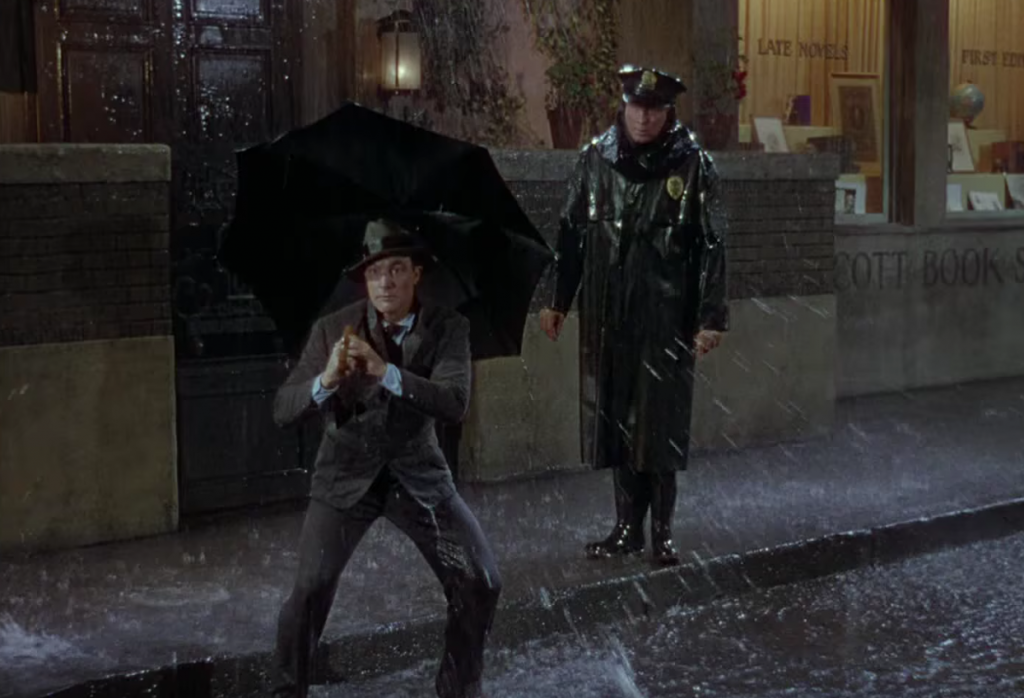
You likely know the scene: a man in love, drops his sweetheart off at her place, then proceeds to sing and dance, despite the inclement weather.
I re-watched the movie the other night — 1952’s “Singin’ in the Rain” (yes, the film with the late Debbie Reynold’s so-called break-out role) — and during this famous dance number it occurred to me just how nicely it illustrated Louis Althusser‘s notion of interpellation: the manner in which identity is not considered to be an internal quality projected outward but is, instead, one that is taken on from social interactions, often between agents of drastically difference consequence. You could even go so far as to say the identity is forced on us by others.
Althusser’s classic illustration, of course, was of a cop hailing you — “Hey you!” — and thus prompting one to suddenly perceive oneself as, say, a suspect.
And, perhaps, run.
What’s nice about Gene Kelly’s example in the movie is that he goes from the picture above to the picture below, due only to the unforeseen appearance of the police officer. Why the change, I’m not sure — did he think his behavior so suspect that he’d be brought in for being a public disturbance? Drunk and disorderly? For we don’t really know what the cop thinks — only that he’s taken an interest in the man with the umbrella, the one stomping around in the puddles.
But the key is that we (the man included) don’t need to know — we adjust our behavior without a word. Becoming something new.

Watch the scene for yourself; it might come in handy if you’re ever trying to illustrate just what it means to be interpellated — a critical category that many scholars of religion have found useful in going about their work.